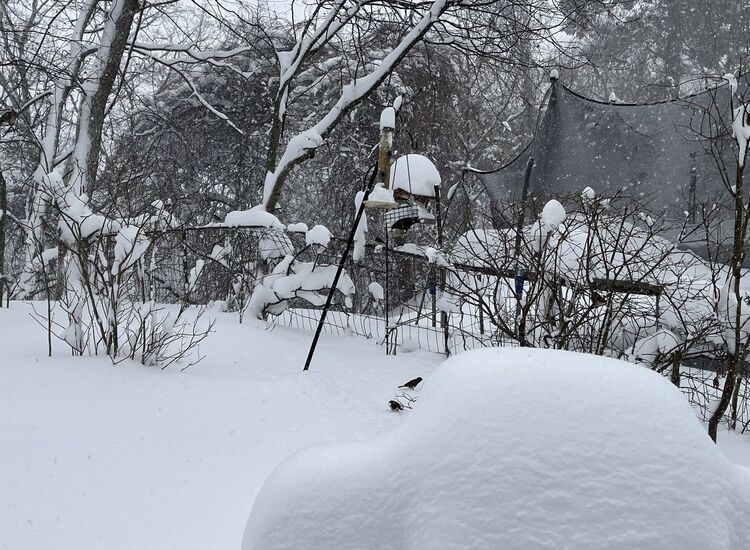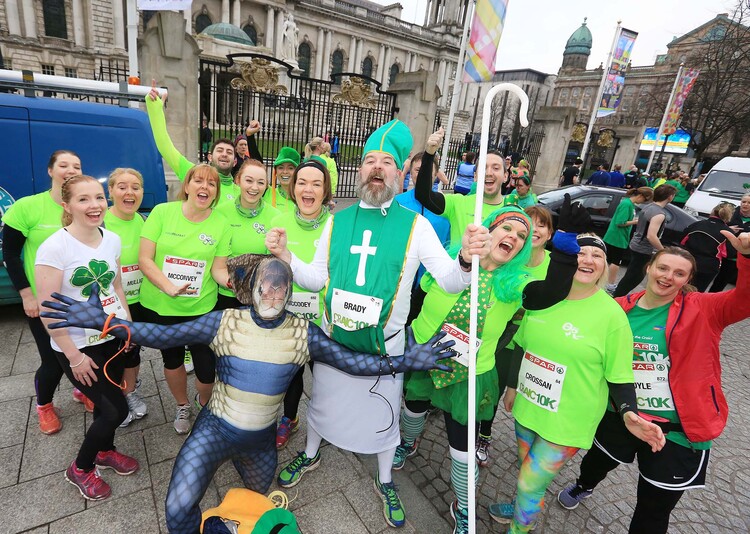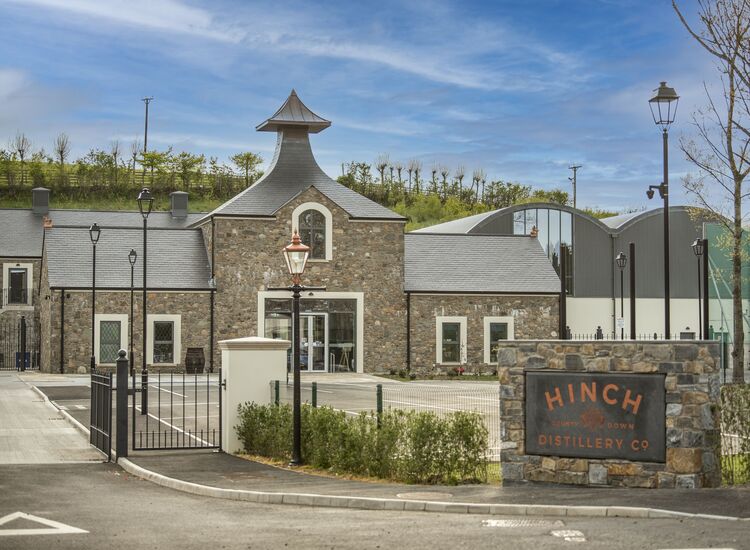Ronan Scully with some of his traveling companions and Ugandan friends. Ronan is standing holding the Irish flag and the teddy bear.
By Ronan Scully
“In Africa, a woman carries water on her head.
“After a year of drought, when one child in three is at risk of death, she returns from a distant well, carrying water on her head…..no milk now for children, but she is carrying water on her head….The sun does not dissuade her, not the dried earth that blows against her, as she carries the water on her head.
“This woman, who girds her neck with safety pins, this woman who carries water on her head, trusts her own head to bring to her people and children what they need now between life and death for She is carrying them water on her head…”(A poem by Joan Murray).
It takes two days to travel from our charity office in New York to the rural poor families with whom Self Help Africa works with in Uganda.
But in other respects it’s a journey that may as well be a million miles. After two days of travel, your eyes are heavy and your legs are stiff but your mind is racing.
You cannot but question how come there are people living in such poverty. It is inevitable then that you ask “what can I do to help?”
I made this journey recently with a great group of supporters of Self Help Africa.
The twelve strong group, who had all undertaken an array of different fundraisers to cover the costs of the trip, were there to both compete in the 2018 edition of a 10k road race in Kampala, the capital, and then travel northwards to visit projects and communities that Self Help Africa is implementing in the East African country.
We read and hear a lot about the changes that Africa is going through, and make no mistake there is change happening.
Almost everyone is connected by mobile phone; the internet is spreading to the remotest corners, and with these and other technological changes a transformation is taking place.
Despite this however, the biggest challenge, poverty, still stares you in the face, everywhere you look.
Children are barefoot and in rags, schools are dirt floored and overcrowded, and electricity, if it exists at all, is not much more than a bare bulb hanging from a ceiling. Life expectancy in Uganda recently topped 60 years of age.
By our standards that is extremely low, but when you consider that it has increased from 52 years of age just a decade ago that is evidence of significant change. Rural unemployment levels remain alarmingly high, and basic services - sanitation, basic healthcare, education and electricity - are way behind what we should expect in any country in the 21st century.
The social and economic challenges that are faced by poor families are vast. It is difficult for us to imagine growing up in a world where you lack the very basics in life such as food, clean water, medicine, shelter, safety, a bed of your own.
Beyond that, there are few toys for children: no dolls, no soccer balls, no sweets and treats. Families struggle to fund the cost of sending their children to school beyond the very rudimentary overcrowded primary schools that are available at a village level, and because of that, huge numbers of young and innocent children are condemned to a life of poverty from the earliest age.
Growing up brings its share of problems wherever you are in the world, but growing up in a place like Uganda can be a struggle beyond imagination. Put yourself into the shoes of an East African child. I should say feet, as many children do not wear shoes.
You can often count yourself fortunate to be still alive at the age of five, and many of your friends have died of things such as malaria, dysentery, malnutrition, and the like. If both of your parents are still living that can be considered another miracle. Malaria is still the number one killer in East Africa, but AIDS comes in a strong second place.
Wherever you go you can see the evidence of the ravages of AIDS. Go into any school and ask how many children have only one parent, or no parent, and you would be astounded.
In a country like Uganda, with a population of just over 40 million, there are as many as 1.2 million AIDS orphans. Yes, there is rebel activity in the north and west of Uganda. Yes, there is malaria and other illnesses. This is the other war, AIDS, the silent killer that sweeps through offices, villages, banks, schools and government institutions.
In fact many businesses refuse to give time off for more than one funeral a month to their employees, since death comes so frequently to families. One of the most secure jobs is to make funeral caskets along the Entebbe road in Kampala as many of our group saw firsthand as we left the city to visit the Self Help Africa projects in rural Uganda. Unfortunately, there is never a shortage of customers for those caskets.
The Irish and U.S. charity I proudly work for, Self Help Africa, is committed to reducing poverty and hunger, by focusing on agriculture – both the capacity of small farms to produce the food that a family might need, and the capacity of the land to generate an income from which the household can invest in food, clothing, school fees, medication and the other necessities of daily life.
On our trip we visited a wide variety of different communities and households that Self Help Africa is working with in the country, and we saw at first hand the impact that the simplest activities can have on ordinary daily life.
Introducing farmers to new crop varieties, supporting families to set up their own modest backyard vegetable plots, and promoting new breeds of goats, pigs and poultry are just a handful in a myriad of activities that are slowly, but surely changing peoples’ lives.
Underpinning all of the different activities that are being carried out by Self Help Africa’s Ugandan team is a relentless focus on training and education so that farmers and their families can do it for themselves, and can make the changes that they want to in their lives. It’s why we are called “Self Help.”
Farmers can be risk averse. In Africa, where the stakes are high, and the margin for error is narrow indeed, it’s understandable. It takes courage and it takes belief to try something new. After all, if a new farming activity doesn’t work out, or a crop you know nothing about succumbs to a disease or a virus and you don’t know how to treat, there could be lives on the line.
That’s why it’s important that the training that is provided is spot on, and the people providing the learning are able to both gain the trust, and provide the back-up support so that farming families are prepared to make the changes that are needed to improve their lives and the circumstances for themselves and their families.
Self Help Africa achieves that in part by identifying and supporting community-based “lead farmers” in the villages where we work, and by also establishing “demonstration plots” to provide farming households with evidence to show them the potential of one particular crop, or of one particular type of compost or method of growing a plant that should be used.
“Lead farmers” - men and women who are of the community and from the community - are given the best quality training and support with particular farming practices that they carry out on their own small farms, and are then supported to become village-based advisors who can help and support others with similar activities.
Although government farm advisory services can be weak to non-existent in some areas (another symptom of poverty), the Self Help Africa team would also link communities and lead farmers in with these supports where they can be of assistance.
As we travelled around the country we saw evidence of this kind of work, and also examples of a variety of other practical activities that Self Help Africa is doing to make a difference in the battle to end extreme hunger and poverty in this corner of the world.
Community-based storage depots, where rural poor families can deposit their crops to a central point for collection, and transport to markets are another simple example of identifying both a problem and a solution to the challenges that people face in their daily lives.
In the far north of the country Self Help Africa is supporting approximately 3,000 rural youths with training so that they have some chance of earning a living in the communities where they were born and reared.
For too long, young people have been fleeing a life on the land in Africa because they feel that it doesn’t offer anything for them.
And who would blame them.
If the family only has a small portion of land, and if that has to be tended, day after day, using hand tools, why not strike out for city life which looks so glamorous and exciting on the brief snippets you might see on a television, or in a newspaper.
Sadly, city life for millions of rural poor Africans isn’t all that it is cracked up to be. Indeed, some of the fastest grown slums and shanty-towns in the world are now springing up in Africa, while closer to home, we are seeing all too often on our TVs the terrible risks and dangers that migrants have faced as they attempt to seek a better life for themselves, away from the village.
Many millions of people in rural Uganda are living in chronic poverty, a crushing cycle where people are born in poverty, live in poverty and frequently pass that poverty on to their children.
In spite of all the interventions put in place in Uganda, poverty and corruption still remains a thorn in its efforts to develop. But this should not stop us from trying to make a difference for the good of the genuine people that need our help and support.
The call to overcome poverty and to uphold human dignity is not new, but today this challenge is especially compelling because we in Self Help Africa believe we have the capacity to make a difference and thankfully we are making a difference for good in a lot of the areas where we work.
Building on past progress and new opportunities, we can make this a time for hope, even though we are, at times, staring into the abyss caused by the global and Ugandan economic crisis.
Hope offers the promise that, with shared sacrifice, wise investment and renewed commitment, we can actually reduce substantially the levels of poverty, hunger, and human deprivation in our own country and around the world.
Self Help Africa’s MAYEP project in Uganda is currently helping 3,000 young Ugandans with training that will help them to become farmers, become small agriculture based business people, and also pursue careers in a host of different areas. In just a year it has seen young people commit their futures to their local areas, as processors and traders, as bookkeepers, as construction workers, transport providers and an array of different careers.
While the scale of the problems of rural Africa may be vast, and the provision of training to 3,000 may, in some respects, be just a drop in the ocean, it does illustrate the practical measures that can be taken, and that can and are making a difference.
These are practical steps made possible by the kindness and support of my twelve Irish travelling companions to Uganda; and they could be made by you too.
These people are not just statistics. They are members of our human family. However, statistics can indicate the magnitude of the problem and the urgency of the task.
Now, in the second half of 2018, more than half of the world’s population lives on less than $2 a day. More than 1.2 billion people live on less than $1 a day.
Over 1 billion people across the globe, most of them children, live with hunger or malnutrition as a regular fact of life. They live in desperate poverty, which means they die younger than they should, struggle with hunger and disease, and live with little hope and less opportunity for a life of dignity. Yet poverty is not limited to the poorest countries as we ourselves know.
In our own beautiful country of Ireland, poverty is also persistent and pervasive. To be poor in our country is far different from being poor in parts of Africa or Asia, but poverty still diminishes the lives and undermines the dignity of many families who live in our midst. In Ireland, thousands of people live below the official poverty line. The younger you are in our country, the more likely you are to be poor, basically because we have kicked the debt from our excessive living and greed down the road so that the younger generation of today and tomorrow will have to pay for it.
I never stopped feeling lucky and thankful while I was in Uganda. I never got the hang of squat toilets or latrines as they are called and despite the lashings of sun cream I basically got around looking like a beetroot and smelling a bit unpleasant but I was also struck by similarities: I had conversations with women about their hair while showing photos of my two beautiful adopted African girls’ hair.
And we are not so lucky in this country that we don't understand the cycle of poverty and the horror of domestic violence.
It is only through the randomness of birth that I am Irish and American. I could easily have been Ugandan. My heritage was not my choice.
But rather than focusing on our differences, meeting these people and children in Uganda has made me realize how alike we are. We breathe the same air. We walk the same way. Our spirits need love and acceptance. Our bodies need food, water and sleep. We share the same humanity. We are really not so different.
Uganda’s people impressed me much more than its poverty. War, hunger and physical suffering have not stolen their hope. They remain joyful when they have every reason to be depressed. You can hear hope in their songs: “The Lord will bless someone today. It may be you. It may be me. It may be someone by your side.”
They have something to teach us. As I’ve written before, sometimes it is us that have been helped. I met some truly beautiful people, especially in Kayunga; all of them friendly and welcoming. I came away feeling blessed to have met them and as though it was me who had been helped, not them.
Children are a precious human resource any country can boast of and it is in the children that any country has its future.
As the saying goes, “a forest without young trees today will never be a forest tomorrow.” It is imperative, therefore, that a child born today in Uganda, and indeed any part of Africa, should survive, grow and develop to their fullest potential in order that these countries can have a prosperous future. Children in these poor countries cannot wait. For children, tomorrow is too late.
It may be a million miles from America or Ireland to Uganda but watching people from both places meet and share of their life together in the African bush I was struck by how close our lives are.
Close your eyes and the voices are all the same, all singing the same song. It's hard to really appreciate the suffering of these people when we are so removed from them in every way. But we can try. We all need help at some point.
The problems of the world can seem pretty overwhelming and it can sometimes feel that simply looking after our own is all we can do and yet, just a little would help so much. Families in these poor countries cannot wait. They have but one humanity, one opportunity.
That opportunity, that time, is in the here and now. Their needs must be met today, not tomorrow.
For many families and children in Uganda, and in our world, tomorrow is too late. The littlest things can help make a difference. Simple examples of this difference include the church gate collections and various fundraising events. It is in this way that we can all play our part in helping to bring an end to hunger, poverty and misery in Africa. The fight against hunger and poverty, and for truth, justice and peace in Africa - and in Ireland and in America - is not anyone’s responsibility. It is everyone’s.
A Ugandan's mother prayer: "I seek not aid, nor seek I gifts. I ask not for bounty nor do I ask for riches. I call for compassion. I call for care. I call for insight. I call for awareness. I call for thoughtfulness. I call for consciousness. I call for apprehension. I call for consideration. I call for recognition. I call for respect. I call for sanity. I call for real hope. I call for love. I call for help. All for our world and its children." (A Poem by Someone who can see and cares)
If you would like to help Self Help Africa with its work, and would like to chat to me about how you can “Act locally but Impact globally” go to www.selfhelpafrica.org. And don’t be afraid to drop me a note to ronan.scully@selfhelpafrica.org.
I’d be happy to chat.








